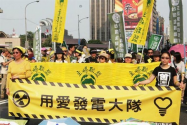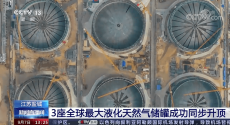someone tell them that electricity prices are also skyrocketing
You are using an out of date browser. It may not display this or other websites correctly.
You should upgrade or use an alternative browser.
You should upgrade or use an alternative browser.
Chinese Economics Thread
- Thread starter Norfolk
- Start date
if you turn down the heat at home, and then use electric blanket, it will be a huge saving in both money and energy.someone tell them that electricity prices are also skyrocketing
Europe will have to either buy gas from Russia or shutdown its industries this winter. A lot of those industries will likely shutdown for good. Heavy industry will move elsewhere where the energy is cheaper. Europe will become more dependent on the Middle East for its energy supplies as well and we know how well that usually goes. Any talks about Africa being a major energy supplier ignore the issues with making them a major supplier i.e. the capacity and know-how are not there.Russia's economy will stand but long term the damage will be massive. Industry and R&D are going to be hit hard.
IMO the only way out for Russia is to economically integrate with China if it wants to survive as a great power (i.e. not becoming a low-value commodity/resource-dominated export country) with advanced industry and R&D
Given the current situation, the biggest showdown will happen in winter. If Europe manages to pass it relatively unscathed, Russia's trajectory for 2023 would be even more bleak than it is now. If Europe folds (I am leaning towards this happening), then Russia wins and gets control of (major) parts of Ukraine with some of the sanctions removed
As much as they would like to a lot of Chinese companies are avoiding Russian chip companies because of payment difficulties or fear of US secondary sanctions. China's chip industry is still quite far from being resilient to sanctions like other industries.Russia greatly benefits from buying into the Chinese semiconductor supply chain. Modern fabs are very expensive. Wouldn't Russia be better off buying the higher node fab equipment to build the older power/analog/RF chips they really need? their design companies can outsource to Chinese fabs for the newer logic and memory chips.
Actually there is a high degree of chance that Russia will continue having a more advanced aviation industry, for transportation, than China. In Russia you have huge distances to cover and high speed rail lines, other than Moscow-St. Petersburg, are pretty much non-existent. China simply does not have the same kind of dependence on aviation that Russia has. And the Russian state just last decade basically redid all the airports in the country.And in the fields of aviation and semiconductors, China is a better choice for neutral countries (like in OPEC) because
1. China's overall technology level is far better
2. China isn't being strangled with sanctions
3. Neutral countries trading with China doesn't attract venom from the West, whereas working with Russia does
With regards to semiconductors the opposite is true with China having a much larger internal market population wise and being a major exporter of consumer electronics products. With major brands which include Xiaomi, Oppo, TCL, Haier, etc.
In the US a huge fraction of GDP is in the educational and health sectors and most people agree those are wildly inflated. A huge chunk of the US economy is a mirage. The US does have a large industry but it is still dependent on global markets to operate.GDP is an important metric in my opinion BUT you need to disaggregate and compare different components that make up the GDP. GDPs of both the US and EU are inflated through expensive services (including rent) and fake statistics like "imputed rent". So in reality the gap is not big and far closer to what we can observe in terms of actual power, and that gap is shrinking - EU is a decaying power similar to Japan and is declining faster than the US, this energy crisis shows that behind all the chest puffing the EU is a paper tiger. If China keeps expanding its influence in Africa, Central & South-East Asia, South & Central America, then soon enough the US and its Warsaw pact will find itself isolated by the people who are tired of their bullshit and who control most of the resources. USA, Canada & Australia don't have enough reserves to maintain the resource poor Europeans & Japanese.
Electric cars? The stock market in China seems to be gathering steam quite a lot as well. The Chinese government is still spending wildly on major construction projects like high speed rail, or metro systems, and will likely be doing that until late in this decade. And if China pushes for nuclear reactor construction, those are also huge users of concrete and steel.Now that real estate will no longer be the hot commodity it once was, where will China put down all it's excess production? Even though the real estate industry was never really sustainable, it created an outlet for whole industries which would otherwise have nowhere to sell their goods (concrete/steel), maybe belt and road 2.0?
mRNA is over hyped for COVID-19. It neither took less time to create those vaccines than traditional ones, nor were they cheaper, more effective, or easier to distribute. mRNA vaccines also had more side effects and using them on the global population like that was a huge gamble and one which we might only know the effects of until later. Why do you think it was previously only allowed for vaccines for cancer? mRNA is based on lipid particles technology. And initial versions of that technology decades back had all sorts of side effects from sterility in women to thrombosis. But the mRNA technology itself is important in that it is a component in a possible global bioweapons arms race. In theory it might be possible to use it to defend against a bioweapon for which creation of alternate vaccines would be difficult.Like you said zero covid is politically driven, but so is mRNA vaccine. They are just waiting for local Chinese mRNA vaccines.
China's rare earth export price hits record high in August as global supplies tighten
By Global Times Published: Sep 08, 2022 01:45 AM

A rare-earth mine in Northwest China's Xinjiang File Photo: VCG
China's rare earth export price hit a record high in August, jumping to $26 per kilogram, up 93.8 percent year-on-year, and industry observers said this upward trend may continue for the rest of the year thanks to factors including tighter policies for environmental protection.
In August, China's rare earth export volume came to 3,673.6 tons, down by 6.7 percent year-on-year, following a decrease of 8 percent in July, data from the General Administration of Customs shows.
The decline in export volume led to tightened supply and higher prices. Wu Chenhui, an independent industry analyst, told the Global Times on Wednesday that the drop in export volume is the result of various factors such as tighter measures for the protection of the environment and resources.
Rare earth export prices will also be pushed up by a supply reduction in Myanmar and surging demand for resources from downstream businesses, the expert predicted.
Other factors such as geopolitical conflicts and inflation may also boost prices.
On August 23, China Minmetals Rare Earth Co disclosed its 2022 semi-annual report, showing that in the first half of the year, the company achieved operating income of 2.201 billion yuan, a year-on-year increase of 39.82 percent.
Countries with large reserves of rare earths such as China have strengthened the protection of rare earth resources and the environment in recent years, and the mining and supply of rare earths are decreasing, experts said.
From the perspective of rare earth reserves, the global rare earth reserves were at 120 million tons in 2021. The top five countries in terms of reserves are China, Vietnam, Brazil, Russia and India, accounting for 95.8 percent of the total reserves.
In the first half of 2022, the profits of most rare earth permanent magnet enterprises maintained a high growth trend, a report from CITIC Securities said, adding that rare earth prices may rise steadily for the rest of the year.
Actually there is a high degree of chance that Russia will continue having a more advanced aviation industry, for transportation, than China. In Russia you have huge distances to cover and high speed rail lines, other than Moscow-St. Petersburg, are pretty much non-existent. China simply does not have the same kind of dependence on aviation that Russia has. And the Russian state just last decade basically redid all the airports in the country.
Yes, China is less dependent on air traffic than Russia, because China has a comprehensive high speed railway network.
But if you look at Revenue passenger-km prior to the Pandemic, Chinese aviation travel is 6x larger than Russia.
Generally speaking, China still needs roughly 6x the number of passenger aircraft than Russia. So China can afford to plough in far more resources than Russia to build an advanced passenger aircraft industry.
And in terms of airport development, China does far more than Russia.
Source below
Electric cars? The stock market in China seems to be gathering steam quite a lot as well. The Chinese government is still spending wildly on major construction projects like high speed rail, or metro systems, and will likely be doing that until late in this decade. And if China pushes for nuclear reactor construction, those are also huge users of concrete and steel.
The stock market is not the real economy in Chna.
Nuclear reactors don't actually use much concrete or steel.
And we're only looking at 150 reactors in China in the next 15 years
Sources below




